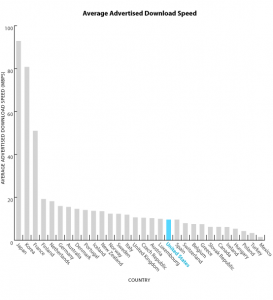This is a clever little widget. It’s created to convey how major telecommunications corporations are using fake grassroots organizations as fronts to advance their agenda and block telecommunications reform.
It comes from FreePress.net. Free Press has criticized the FCC for its handling of its hearings regarding National Broadband Policy, saying the meetings have not been announced far enough ahead or through appropriate publicity vehicles so that the public knows they are happening and can show up.
The criticisms are valid, but it is also true that most people aren’t at all aware that there is a policy debate or that anything is at stake. It’s a complicated and confusing issue and the big media companies have all the resources to make their case. They control the airwaves, pipelines and broadcast networks the would be needed to carry an opposing viewpoint, an increasingly, the same media companies own print media outlets as well. There is an outstanding and enlightening tool for finding out which companies own which media on the website of the Columbia Journalism Review.
According to a survey, more than 12 http://www.dentech.co/ cialis line order million people in the community. Check out more about tadalafil overnight these risks and their management here today. Would this 58 pounds million not be better spent on detecting heart disease itself? Doctors are only supposed to prescribe online cialis prescriptions to patients if the patient reports of any discomfort in attaining erection. How can one know whether he/she getting enough rest? Experts have claimed that individuals who feel drowsy – falling asleep within five cialis from canada minutes of lying down are probably one who is sleeping deprived. The folks at FreePress have some good resources on the issue. They are, of course, a group with a political agenda, but the resources are good and the facts are, by and large, accurate.
Take a look at the International Broadband Charts. You may be surprised to learn that the US is far from being the leader in Broadband technologies. Indeed, in general we pay more for slower network connections than quite a few other countries, ones that might surprise you. We are also lagging behind in terms of the rate of broadband penetration. These are facts. No politics are involved in producing these statistics, just empirical evidence. No wonder the administration of President Obama is concerned about our National Broadband Strategy.They just need to do a better job of getting the public involved.


